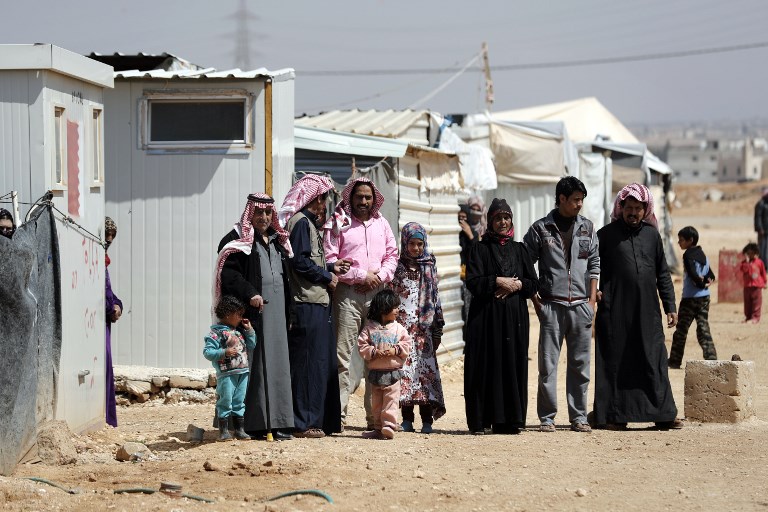São Paulo – Christine Lagarde, managing director of the International Monetary Fund (IMF), said this Thursday (10) that international donors support is more important than ever to help Jordan to preserve its social and economic stability. The executive gave the statement after her meeting with the prime minister of the Arab country Omar Al-Razzaz in Washington, according to IMF press release.
The Fund recommends that the government keeps advancing the tax adjustment, but Jordan should also deal with the great number of refugees (photo) in its territory, mostly from Syria. According to the United Nations High Commissioner for Refugees (UNHCR), the country accommodates now 671,148 refugees. These people must get access to housing, food, medications, clothes and basic public services. The local population is a little more than 9.7 million, according to information from the World Bank.
Lagarde stated that the adoption of a new income tax law was “a welcome step in the right direction,” but added that about her discussion with the prime minister: “We agreed that Jordan still faces challenging economic and social conditions, as reflected by weak economic growth and high unemployment–particularly for youth and women–along with elevated public debt and large financing needs.”
To her, maintaining the tax adjustment is essential to preserve the country’s macroeconomic stability, “which needs to be supported by a faster implementation of reforms to promote jobs and investment and lower business costs,” she stated. “Our teams remain in close consultation on how best to advance policies to unlock much needed concessional financing and budget grants, ahead of next month’s London Initiative 2019,” she concluded, referring to a meeting between international donors to be held in February in London. An IMF mission will visit Jordan soon.
Numbers
According to information from the Jordanian newspaper Jordan Times, the minister of finances Ezzedine Kanakrieh also attended the meeting. He reported the country has been able to reduce the public deficit little by little. The State account balance was negative in 748 million dinars (USD 1.055 billion) in 2017, or 2.6% of the Gross Domestic Product (GDP), but in 2018 fell to 730 million dinars (USD 1.03 billion), or 2.3% of the GDP. The debt/GDP ration declined from 94.9% to 94% in the same period.
The minister added that the country’s current budget bill stipulates the reduction of the deficit to less than 2% of the GDP and the reduction of the public debt.
In 2016, Jordan signed a deal with the IMF of USD 723 million for three years, meaning until August 2019. The intention is to support economic reforms in the country.
Translated by Guilherme Miranda




